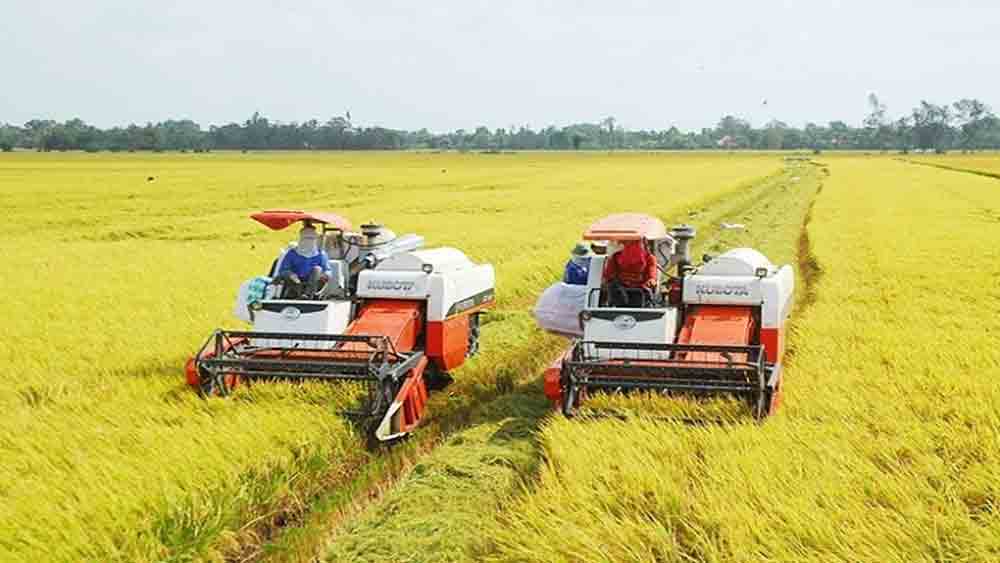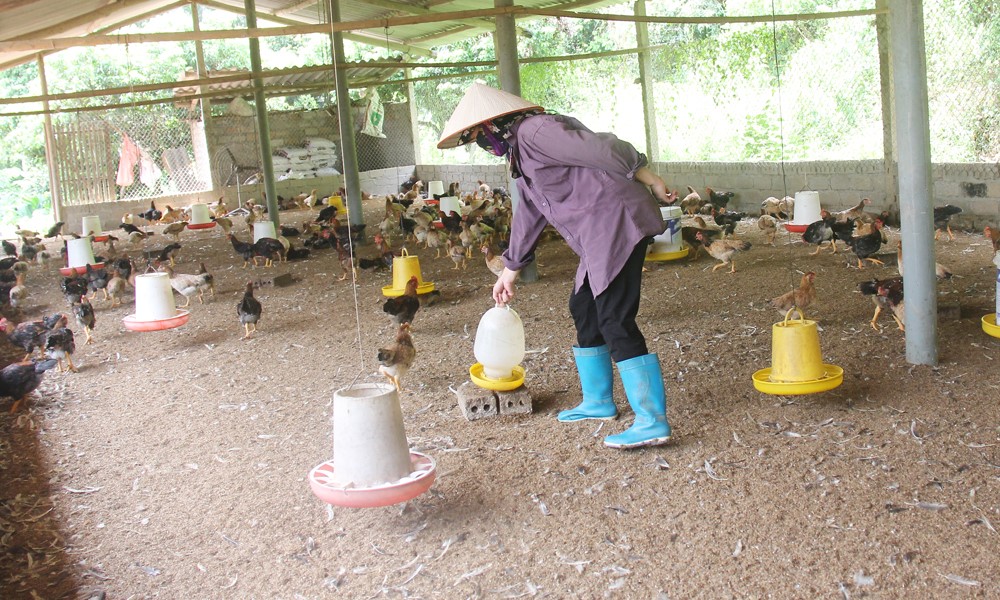Ensuring national food security
Accordingly, the Politburo has urged the Party Committees, Party organisations and authorities at all levels to pay attention to directing localities and units to improve agricultural land use efficiency and maintain 3.5 million hectares of rice land with annual rice output at a minimum of 35 million tonnes, serving as the core in ensuring national food security.
 |
|
Rice harvesting in Vietnam's Mekong Delta region. |
In addition, the Politburo has requested the effective use of the rice land fund with strict plans, as well as the improvement of the lives and income of people in rural areas.
It can be seen that ensuring food security still remains one of Vietnam’s key priorities, particularly in the context of a changing domestic and international situation like at present.
Specifically, Vietnam is one of the countries most affected by climate change, natural disasters and extreme weather patterns (storms, floods, droughts, extreme heat and extreme cold).
Due to the impact of climate change and rising sea levels, Vietnam’s agricultural sector is at risk of losing 7.2 million tonnes of rice and having 32.2% of agricultural land affected by the end of the 21st century.
If the average temperature increases by 10 degrees Celsius, rice output will decrease by 10%, corn production down 5-20%, and the demand for irrigation will surge by 10%. This will adversely affect food production and threaten food security for the poor and near poor.
Meanwhile, global food demand has also expanded due to increased population, increased per capita income and changes in diet. According to the United Nations, the world’s population will increase from the current 7.5 billion people to about 10 billion by 2050, which also means agricultural production needs to grow by 70% to meet the population’s demand for food at that time.
In the face of subjective and objective conditions mentioned above, the task of ensuring national food security has become extremely urgent, in which due attention must be paid to rice, a strategic commodity with direction impacts on food security and socio-economic stability.
Together with maintaining 3.5 million hectares of rice cultivation land, another big problem relates to improving the income and lives of rice farmers. In recent years, the Party and State have issued policies to support rice farmers. However, often times, farmers still suffer when the rice price falls and even plunges to below the production cost, causing losses for many farming households and driving them to abandon their fields in some localities.
Therefore, in order to effectively implement Conclusion No. 81-KL/TW on ensuring national food security until 2030, competent agencies will need to develop mechanisms and policies to appropriately and effectively support farmers, thus helping bring rice farming households into professional production households; encouraging rice production in the form of connecting cooperatives with businesses and associating production with processing, preservation and consumption; and efficiently building large-scale fields and production areas with geographical indications and market connections.
In particular, preferential policies should be effectively implemented to support farmers, cooperatives and enterprises in successfully applying technological advances to move step by step towards modernising the rice commodity industry, thus contributing to ensuring food security and improving rice farmers’ income.
Source: NDO
 Bắc giang
Bắc giang















Reader's comments (0)